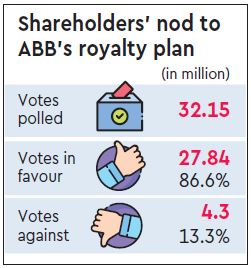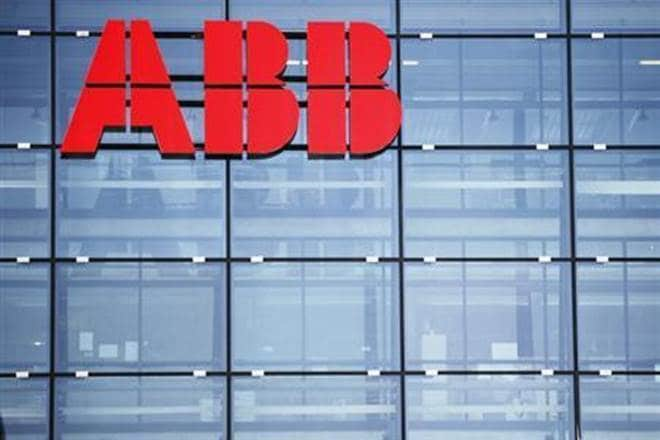Minority shareholders of ABB India have approved a resolution that will allow the company to pay 4% of its annual consolidated turnover for 2018 as royalty to the parent company — ABB Schweiz AG. The proposal received 86.6% votes in favour and 13.3% votes against it. Since it was a related-party transaction, the promoters abstained.
The Securities and Exchange Board of India’s (Sebi) proposal that companies need shareholders’ approval to pay over 2% of revenues in royalty was scheduled to kick in from April 1 but will now kick in on June 30, 2019. The delay has been attributed to apprehensions on the part of the finance ministry that the rule might upset MNCs and hurt FDI (foreign direct investment) inflows.
While the Kotak Committee had suggested a threshold of 5% of revenues, market regulator Sebi decided on a much lower level of 2%.

According to proxy advisory firm IIAS, ABB India paid Rs 888 crore or 8.2% of the company’s net sales to parent company for calendar year 2018. The firm pointed out that there are 16 MNCs that paid over 2% of revenues as royalty during FY18. “Aggregate royalty paid by 30 MNCs during the financial year ended in 2018 was Rs 7,823 crore,” IIAS noted.
Last month, Nestle India’s shareholders approved the resolution to pay 4.5% of net sales as royalty towards its parent firm. Castrol India also got a similar resolution passed with a dominant majority.
Sebi’s regulation has given minority investors more powers. Earlier this year, Jubiliant Foodworks had to withdraw its decision to pay royalty to promoters just a few hours after making the announcement following immediate investor concerns.
Havell’s promoters were paid royalty for the brand up until April 2016 despite the company itself bearing advertisement and other brand building costs.
ABB put the resolution to vote at the annual general meeting held on May 8. The resolution stated: “…with respect to royalty/licence fee during the financial year 2019 subject to such payment not exceeding 4% of the company’s annual consolidated turnover of the audited financial statement of the financial year 2018.”
